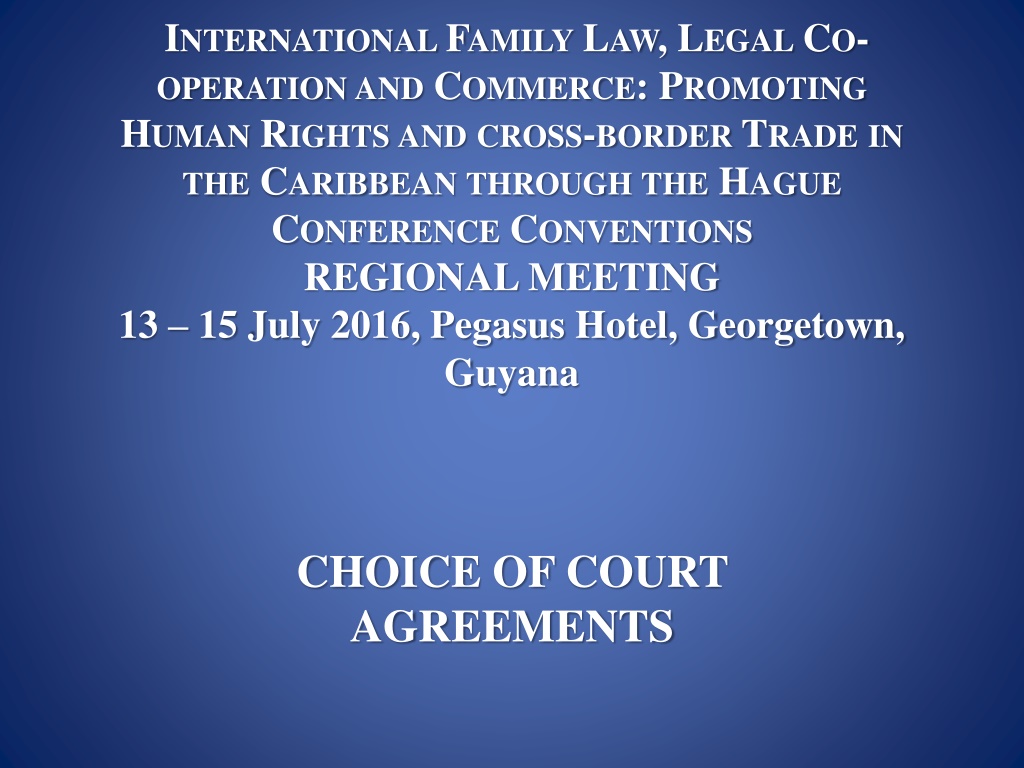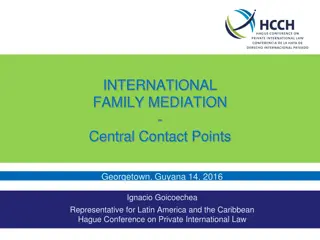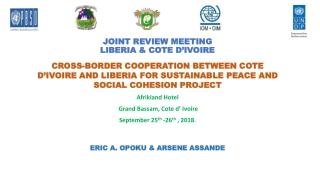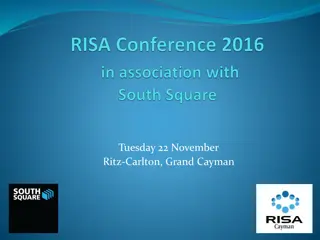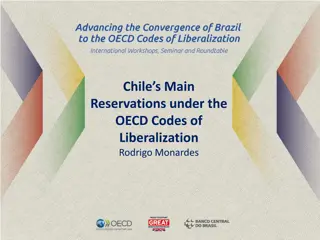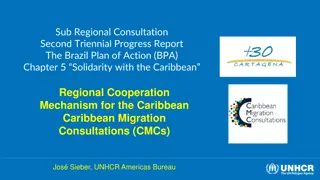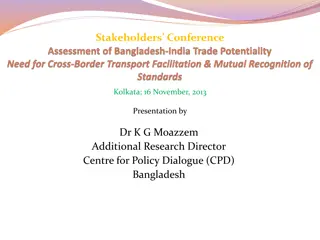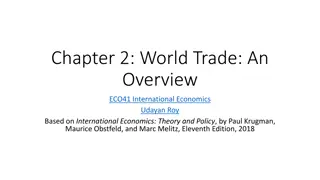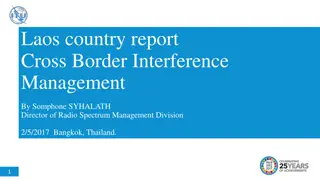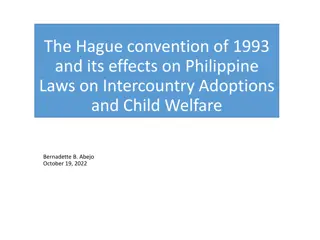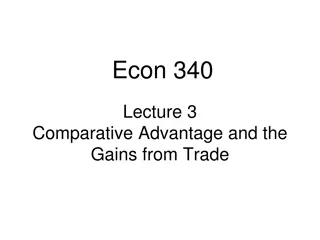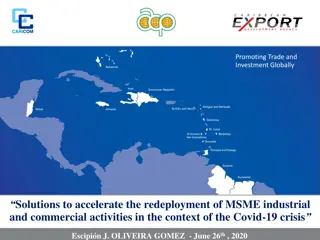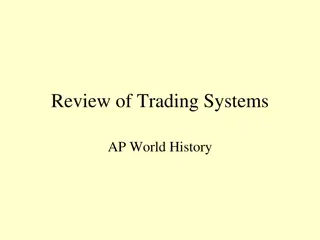Promoting Human Rights and Cross-Border Trade in the Caribbean through The Hague Conference Conventions Regional Meeting
This presentation discusses the significance of choice of court agreements in international cases, focusing on commercial matters. Originating from proposals by Arthur T. von Mehren, the Convention aims to enhance the recognition and enforcement of such agreements, promoting international trade and investment while excluding certain areas. Key features include court selection, exclusivity, and enforcement. A notable case study is provided, highlighting the pioneering Bremen v. Zapata Off-Shore Co. case in the U.S.
Download Presentation

Please find below an Image/Link to download the presentation.
The content on the website is provided AS IS for your information and personal use only. It may not be sold, licensed, or shared on other websites without obtaining consent from the author. Download presentation by click this link. If you encounter any issues during the download, it is possible that the publisher has removed the file from their server.
E N D
Presentation Transcript
INTERNATIONALFAMILY LAW, LEGAL CO- OPERATION AND COMMERCE: PROMOTING HUMAN RIGHTS AND CROSS-BORDER TRADE IN THE CARIBBEAN THROUGH THE HAGUE CONFERENCE CONVENTIONS REGIONAL MEETING 13 15 July 2016, Pegasus Hotel, Georgetown, Guyana CHOICE OF COURT AGREEMENTS
Purpose To make choice of court agreements between parties more effective To create a framework for the consistent recognition of choice of court agreements To promote international trade and investment
Origins Arthur T von Mehren can be credited for the proposals which led to the Convention A mixed convention was originally proposed but this did not come to fruition. The Convention s focus was previously to be business to business cases such as trusts, physical torts, counterclaims etc In 2002, after several meetings, it was decided that the focus of the Convention should be narrowed to only include choice of court agreements in commercial cases The 2004 draft Convention formed the basis of the final text.
Scope Article 1 states that the Convention applies only in international cases to exclusive choice of court agreements concluded in civil or commercial matters. Article 2 excludes matters such as consumer contracts and contracts of employment, the validity of entries in public register, arbitration and related matters, family law matters etc from the scope of the Convention. These exclusions reflect the aim of the Convention which was its application to commercial areas
Features There are three main features of the Convention 1. The chosen court must hear the case (Article 5) 2. Courts that have not been chosen cannot hear the case (Article 6) 3. Recognition and enforcement (Article 8)
Case Study The Bremen v. Zapata Off-Shore Co. 407 U.S. 1 (1972). This was a pioneer case in the United States as it was the first time that a choice of court agreement was recognized by a United States court.
References Hartley, T., & Dogauchi, M. (2005). Convention of 30 June 2005 on Choice of Court Agreements : Explantory Report. Permanent Bureau of the Conference. Jhangiani, S., & Amin, R. (2016, June 15). Lexology. Retrieved June 25, 2016, from lexology.com: http://www.lexology.com/library/detail.aspx?g=6f95bf d7-9fa9-4a9a-8a69-774ddd8eb608 Tan, D. (2016, April 14). The Worker's Party. Retrieved May 28, 2016, from The Worker's Party website: http://www.wp.sg/choice-of-court-agreements-bill- speech-by-dennis-tan/
Calvin A. Hamilton, FCIArb Senior Lecturer, Faculty of Law University of the West Indies Cave Hill Campus Barbados
